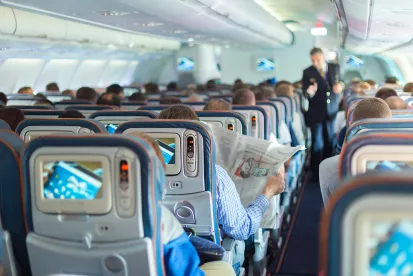The White House announced on Monday, Sept. 20, 2021, that in early November of this year, it intends to end the COVID-19 travel bans imposed in 2020 and replace them with vaccination and COVID-19 testing requirements for almost all travelers.
How the Travel Bans Currently Impact Travel
As a result of these bans, travelers from the UK, Ireland, the Schengen region, China, India, Iran, South Africa, and Brazil are currently prohibited from entering the United States if they have been in one of those countries in the previous 14 days, unless they meet one of several exceptions.
Some individuals, such as U.S. citizens and certain relatives, as well as permanent residents, are exempt from the current travel bans, while others are required to apply for a National Interest Exception (NIE) before being issued a visa to the United States or traveling with a previously issued visa.
How the November Policy Change Will Change the Process
With the implementation of the new policy in November, the vaccination and negative COVID-19 test requirements will be imposed on all travelers to the U.S. without regard to their country of departure, including U.S. citizens and permanent residents. Proof of vaccination and a negative COVID-19 test will be required prior to boarding the flight to the U.S. The Centers for Disease Control and Prevention (CDC) will provide guidance regarding which vaccines will be accepted.
As a result of lifting the travel bans, the NIE requirement will also be eliminated. Under the new policy, limited exceptions will exist for children, for people who are participating in vaccine clinical trials, and for those who have urgent travel needs for humanitarian reasons but lack access to vaccination. No information has been released regarding the process for applying for an exception based on vaccination considerations.
Individuals who are exempt from the vaccine requirement may still be required to be vaccinated upon arrival. No one will be exempt from the negative COVID-19 test requirement. The White House also indicated it intends to expand pre-departure and post-arrival testing requirements as well as implement a Contact Tracing Order for airlines. The White House did not announce any changes to the land border travel policies.
All of this information is subject to change between now and November, as the White House has only announced its plans to lift the travel bans but has not yet actually done so. No specific date in November for lifting the bans has been announced, nor do we have any detailed information regarding how the new policies are going to be implemented.
What This Means for People Who Have Valid Visa Stamps in Their Passports
Individuals with valid visa stamps in their passports will be free to travel anywhere in the world, as long as they satisfy the vaccination and COVID-19 testing requirements. These travelers can begin making travel arrangements for mid-to-late November at this time as long as they understand significant changes may take place to the announced plan, including a possible delay in lifting the bans. They should, accordingly, make travel arrangements which allow for maximum flexibility.
Unvaccinated individuals who need approval to travel without being vaccinated should wait until November to make any travel plans since preapproval for their travel would be required.
What This Means for People Who Need to Apply for Visa Stamps at U.S. Consulates
U.S. consulates around the world are currently operating at reduced staffing levels, under stringent COVID-19 restrictions, and facing mounting case backlogs, while complying with Department of State directives to prioritize immigrant visa petitions over non-immigrant visa petitions (which include temporary works visas).
The fact that the travel bans are going to be lifted does not mean that visa issuance is suddenly going to return to pre-travel-ban processing rates. The consulates will continue to struggle for quite some time under the burdens identified above, which means there will continue to be substantial delays in visa appointment scheduling.
The current process for visa issuance at most consulates requires the scheduling of an appointment several months in the future, followed by a request to expedite the appointment based on the need for immediate travel and a credible showing of NIE eligibility. Inability to prove NIE eligibility results in a denial of the expedite request. Once the travel bans have been lifted and the NIE requirement has been eliminated, this expedite process will have to be modified, but how that will occur has not yet been identified.
We recommend anyone who needs to obtain a visa from a U.S. consulate (including those who have been denied visas due to NIE ineligibility) should arrange, as soon as possible, to schedule an appointment, even if that appointment ends up being set for after the first of the year. While they will probably not be able to submit an expedite request until after the bans have been lifted, they will at least have an appointment in place for the purposes of an expedite request when possible.
Even if the expedite request is ultimately denied, these applicants will still have an appointment in place, which will take place much sooner than if they had waited until November to schedule it. In November, many are going to realize for the first time that the bans on travel no longer exist, and having an appointment scheduled now should put you in front of the flood of appointment requests the consulates will see as a result.




 />i
/>i

